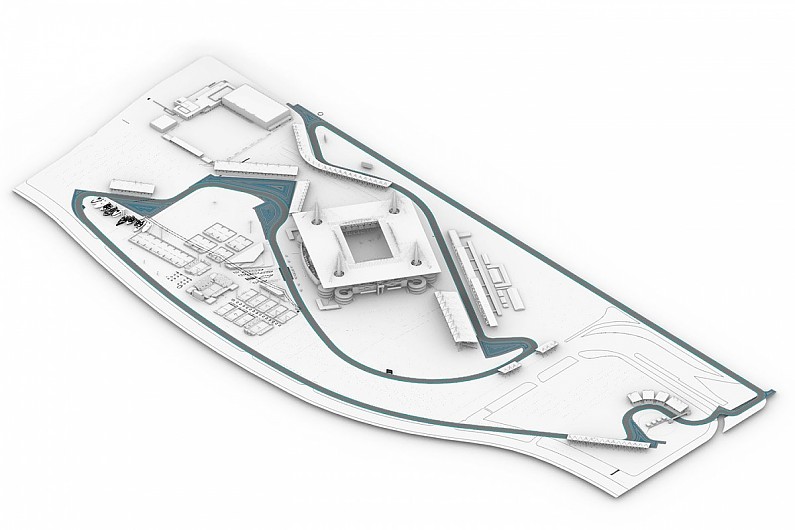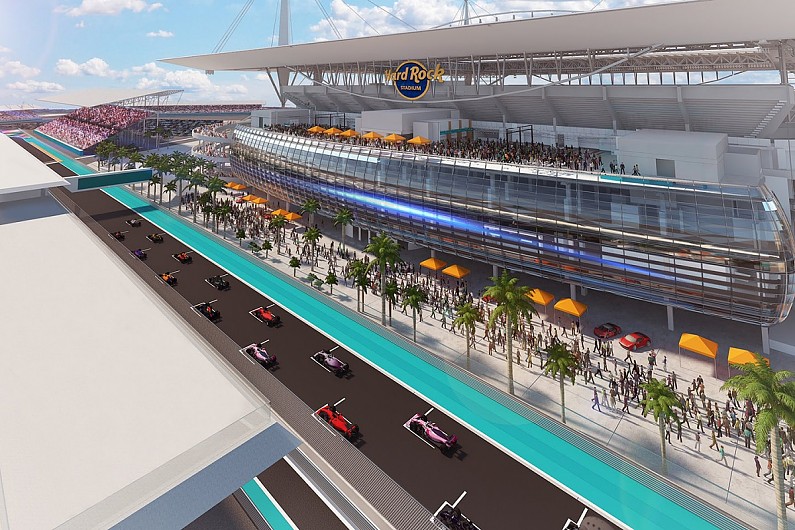The proposed 2021 Miami Formula 1 race now requires a further public hearing in December, after the proposal faced major local opposition during a county commissioners’ board meeting on Tuesday.
The new F1 track is proposed to be built using both public roads and the parking area of the Hard Rock Stadium, home of the Miami Dolphins NFL team, which is located in Miami Gardens area of the city.
During a motion entitled “Establishing county policy regarding motor vehicle racing” the opposition to the event argued that a large-scale public hearing was required to discuss the full impacts of air and noise pollution, as well as disruption of road closures during the event.
Two votes aimed at derailing the process of bringing F1 to the stadium were passed by commissioners.
The first was related to requirement of approval after a public hearing, while the second was related to public road closures requiring county commissioner-level approval.
The opposition group against the event was led by former county commissioner Betty T. Ferguson, who argued that county studies on the event showed “deadly effects” of air and noise pollution.
“It’s Formula 1 racing in a bedroom community,” said Ferguson.
“The majority of residents in Miami Gardens do not want to see F1 racing at Hard Rock Stadium; the Miami Gardens city council voted to oppose Formula 1.
“We have seen too often deep pockets paint rosy pictures and have their way, only to the embarrassment of the county at a later date.
“Don’t allow F1 promoters to come in and roll over us over, like we’re not even humans.
“They can produce all kinds of phony statements about how they can mitigate the deadly effects, but we can never erase deadly health damage, and possibly permanent hearing loss, especially to children.
“Even the county’s own study verifies the deadly effects.

“No permission for road closure or special events should be given to the Dolphins without full public hearing.”
Miami Gardens Mayor Oliver Gilbert also spoke out against the race taking place: “We understand we’re in the business of tourism, but this has to be a good place to live and not just visit.
“F1 may bring people, but the people live here matter and sometimes we forget that. There’s people living around the corner, there are schools there.
“I’m not against events at the stadium, but not all events are the same. We’re not in support of Formula 1. It’s not a place to dump events that are toxic to people.”
Marcus Bach-Armas, senior director for legal and government affairs for the Miami Dolphins, lobbied that the commission had previously voted 13-0 in favour of bringing F1 to Miami, and they wanted the event to stay in the county after plans for the downtown street circuit fell through.
He also made it clear that the county had authorised racing to take place at the venue: “We are zoned for motor vehicle racing because a couple of years ago we resolved a lawsuit with the county commission and the city council, there were public hearings and public votes and the resolution of those three years of discussions.”
He said the event would be “an economic juggernaut for this area” and argued that the stadium was a “regional asset that’s balanced with residents, and we’ve worked together with them to sort through issues before”.
Formula 1’s commercial managing director Sean Bratches and two-time F1 world champion Emerson Fittipaldi also lobbied in favour of the event during the City Hall meeting.
The previous Miami GP plan – to run a street race around the Bayfront Park, Biscayne Boulevard and Port Miami areas – was hampered by vehement public opposition to the disruption that the event would cause to residents, coupled with the loss of the land around the American Airlines basketball arena.
However, advocates of running the race at the Hard Rock Stadium stated that it was in fact the operation, construction, development and security issues at the port that ended the plan, rather than the residents’ challenge that killed the original plan.
